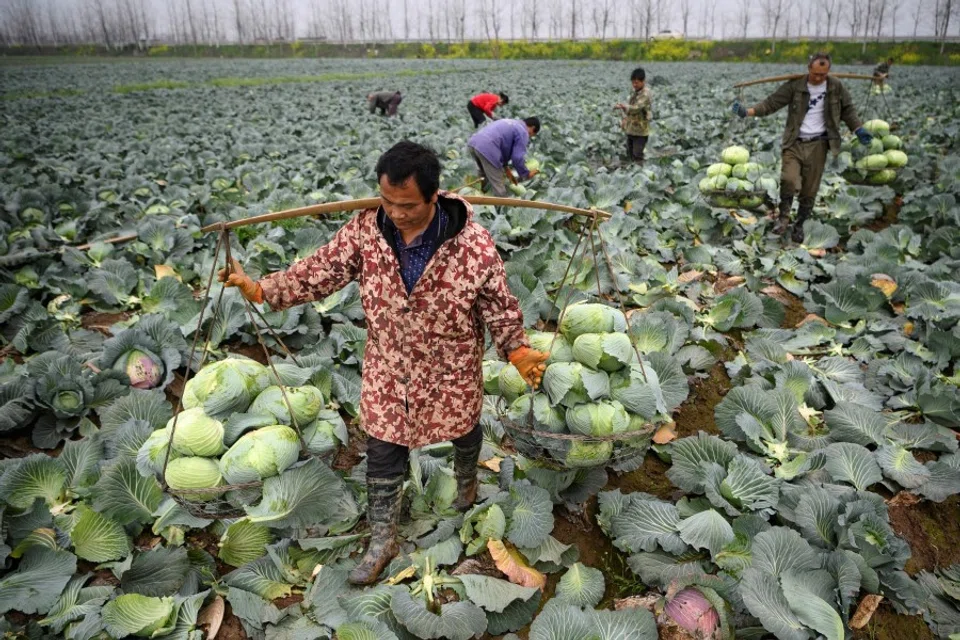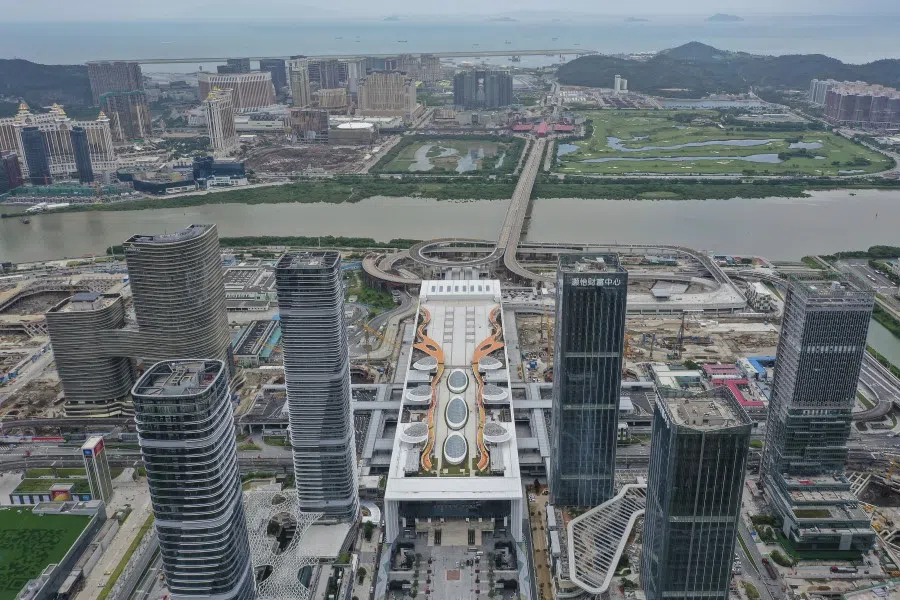Food scraps and empty new apartments: China's fight against wastage
China has a problem of wastage, and two areas where this is clearly seen are food and property development. Hong Kong commentator David Ng reviews the impact on China's economy.

Soon after Chinese President Xi Jinping spoke out about food wastage recently, the Chinese authorities sprang into action to improve the situation.
With economic progress and a higher standard of living, having meals at company expense is common in China. And traditionally, the Chinese do not finish everything on their plates, leading to rampant food wastage in China.
Changing the way China dines
For measures against food wastage to stick, the country's culture of food consumption first has to change. And the measures have to be feasible, such as serving dishes in individual portions.
Second, the hosts should not order a large number of dishes just to keep up appearances. Some eateries penalise their staff if customers order too much food, while some eateries have a rule that customers can only order an amount for one less person - or even two fewer people - than the number of people in the group. (Going by this rule, a sole diner might be turned away!)
Unconsumed food becomes leftovers; the more waste, the lower the proportion of resources reasonably consumed
Production minus spending equals savings. All things being equal, this means savings on invested resources. Consumption means using social goods to fulfil human needs, while social goods are produced with resources, and an inefficient use of resources becomes waste.

Eateries turn ingredients into dishes, and the value-add in the food and beverage industry is reflected in the prices of these dishes. Customers pay for ingredients and service, and such spending becomes a gauge of the people's income.
Unconsumed food becomes leftovers; the more waste, the lower the proportion of resources reasonably consumed, because when a consumer orders one less dish, the more they have in the bank.
Being strict about eliminating wastage also safeguards food security, while more savings means more resources invested. And if resources invested turn out to be more than what customers waste in eateries, that would improve resource distribution.
All that was about objecting to food wastage. Now for another type of wastage.
Empty houses make the most noise
Recently, I visited a factory in Zhongshan city in the Guangdong-Hong Kong-Macau Greater Bay Area, where I had not been for about two or three years.
Zhongshan and Zhuhai on the west bank of the Pearl River have grown quickly in recent years, with countless new residential buildings going up, especially in Zhongshan.
Houses are for living in; building them and leaving them empty is also wasteful.
However, these swathes of new units have been unsold for ages. The dark, unlit windows remind one of a line by Song dynasty poet Jiang Kui: "Dusk falls; a cold wind blows in a lonely corner; the city is empty." That line refers to "a famous city on the left bank of the Huai River". Both are "famous cities", but the city in the poem is in the Yangtze River Delta, while Zhongshan and the other places are in the Pearl River Delta.
Xinhui and Jiangmen are also on the west bank of the Pearl River, both also with many new buildings and many empty units.
Building residential units would naturally increase employment opportunities in a place and drive related industries, and push up its GDP: that is real estate economics.
Houses are for living in; building them and leaving them empty is also wasteful. If those units had not been built and left unsold or unoccupied, developers, small investors, and the entire society would be able to save that money, and the banks would be able to better distribute resources.
The population of Zhongshan is 3.38 million, and 2.02 million people for Zhuhai. The population in both places is growing faster than the natural birth rate, meaning that there is a steady stream of foreign workers moving into both places.

One should not expect Hong Kong and Macau residents to support property prices in the Greater Bay Area on the west bank of the Pearl River, just as one cannot expect mainland Chinese immigrants in Hong Kong to change Hong Kong's political climate.
Even while the Greater Bay Area is being built up, the other parts of China continue to be developed, sometimes even faster than the Greater Bay Area. And while the Greater Bay Area is good, would there be so much labour flowing there from all over China?
However, as in Zhongshan, there are many empty units to begin with, while the rate of construction is faster than population growth, leading to a rapid increase in empty units.
It is easy to foresee that a Trump drop will quickly follow a Trump rise in the US stock market
With effective market resource allocation, prices will allow a balance in supply and demand. But because China's economy boosts property development, currency supply and bank funding prop up China's property prices. Even if property developers cannot sell houses, prices would be stable and healthy, and because prices do not drop, the only way to go is up.
One thing better than many developed countries is that with slower growth of China's economy amid the coronavirus, the government would not do anything to impact the property market at this time.
Even as the US economy has shrunk due to the coronavirus, its currency policy has allowed its stock market to carry the show on its own. It is easy to foresee that a Trump drop will quickly follow a Trump rise in the US stock market - as one sows, so shall one reap.
A recent article in The Economist said: "Unlike its reaction to the financial crisis of 2008-09, the [Chinese] government's response to Covid-19 has been restrained, with a stimulus worth about 5% of GDP, less than half the size of America's."
Having said that, the damage caused by the wastage in China's property economy is much greater than food wastage.
This is not easy to solve, but has to be faced. There is still a possibility of China's property bubble sparking a financial crisis, especially now with incomes falling across the board and property prices beyond what many can afford.



![[Big read] When the Arctic opens, what happens to Singapore?](https://cassette.sphdigital.com.sg/image/thinkchina/da65edebca34645c711c55e83e9877109b3c53847ebb1305573974651df1d13a)

![[Video] George Yeo: America’s deep pain — and why China won’t colonise](https://cassette.sphdigital.com.sg/image/thinkchina/15083e45d96c12390bdea6af2daf19fd9fcd875aa44a0f92796f34e3dad561cc)